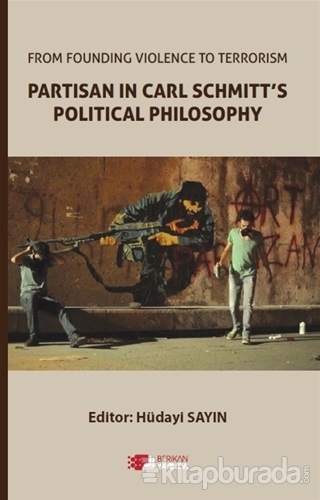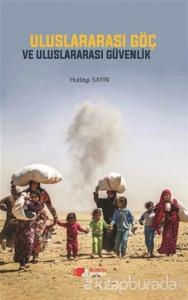From Founding Violence To Terrorism Partisan In Carl Schmitt's Political Philosophy

Whether he is considered among the political theorists of modernity with Benjamin, Derrida, Agamben or among "reckless geniuses" as a "philotiranic intellectual (philosopher-tyrannical intellectual)" like Heidegger and Lukacs, Carl Schmitt is the most popular thinker in recent years and seems to be most interested in current issues". Inspiring Cacciari, Schmitt has his place "among the voices that determine the rhythm of the debate" between the political crisis and the promise in "Europe's Geophysics (Geofilosofia dell'Europa)" arising from "war/peace, East/West, land/sea, law/rootlessness with Plato, St Augustine, Nicolaus Cusanus, Machiavelli, Simone Weil, and Heidegger. For Poggi, Schmitt is one of the two reference sources explaining the formation of the modern state through the concepts of "politics" and "political" together with David Easton. Easton uses the concept of "political" for order-based distributions that have direct or indirect influences overall society. Schmitt (on the other hand) states that it is necessary to first determine what the decisions with "political" essence are to define the nature of politics. It depends on the presence of two opposing concepts that define the limits of the political field. Schmitt defines the political field within the framework of the "friend/enemy" distinction. The fundamental political function of a community is to determine which of the other communities are friends or enemies. Communities that we consider friends in the "Us vs Others" dilemma are those accepting our existence as an independent and undivided society. Whom we call the enemy are those engaging in political activities that threaten our unity and independence. The barbarians join the infidels and turn into enemies that destroy civilization and violate the borders. "The stage is now ready for the births of the individual gods, their stories, and above all, the wars between gods to be caused by Eros (Love) and Eris (Hate), and the rebellions that will occur when the man discovers his intellect."
- Açıklama
Whether he is considered among the political theorists of modernity with Benjamin, Derrida, Agamben or among "reckless geniuses" as a "philotiranic intellectual (philosopher-tyrannical intellectual)" like Heidegger and Lukacs, Carl Schmitt is the most popular thinker in recent years and seems to be most interested in current issues". Inspiring Cacciari, Schmitt has his place "among the voices that determine the rhythm of the debate" between the political crisis and the promise in "Europe's Geophysics (Geofilosofia dell'Europa)" arising from "war/peace, East/West, land/sea, law/rootlessness with Plato, St Augustine, Nicolaus Cusanus, Machiavelli, Simone Weil, and Heidegger. For Poggi, Schmitt is one of the two reference sources explaining the formation of the modern state through the concepts of "politics" and "political" together with David Easton. Easton uses the concept of "political" for order-based distributions that have direct or indirect influences overall society. Schmitt (on the other hand) states that it is necessary to first determine what the decisions with "political" essence are to define the nature of politics. It depends on the presence of two opposing concepts that define the limits of the political field. Schmitt defines the political field within the framework of the "friend/enemy" distinction. The fundamental political function of a community is to determine which of the other communities are friends or enemies. Communities that we consider friends in the "Us vs Others" dilemma are those accepting our existence as an independent and undivided society. Whom we call the enemy are those engaging in political activities that threaten our unity and independence. The barbarians join the infidels and turn into enemies that destroy civilization and violate the borders. "The stage is now ready for the births of the individual gods, their stories, and above all, the wars between gods to be caused by Eros (Love) and Eris (Hate), and the rebellions that will occur when the man discovers his intellect."
- Yorumlar
- Yorum yazBu kitaba henüz kimse yorum yapmamıştır.



